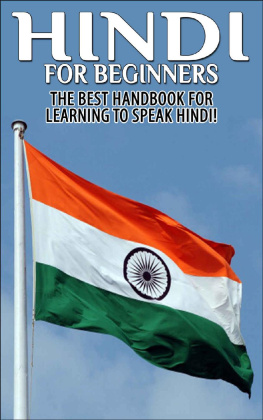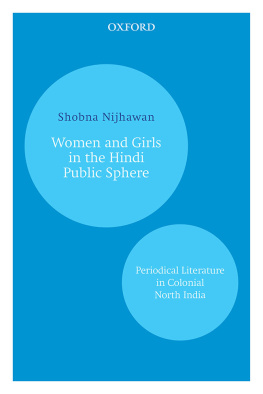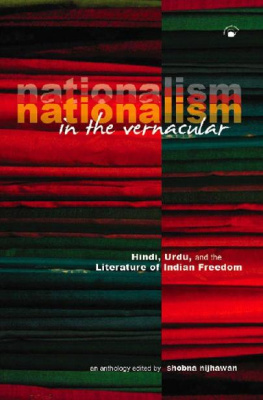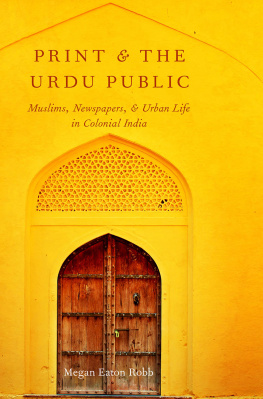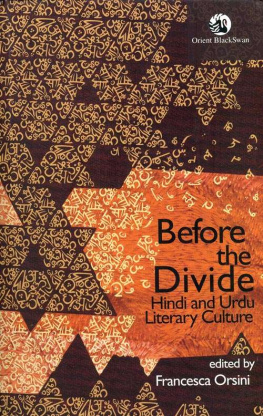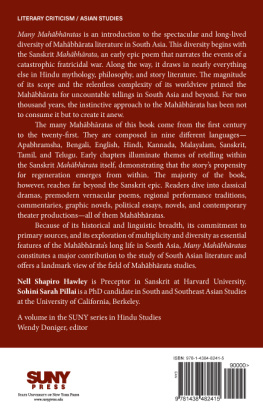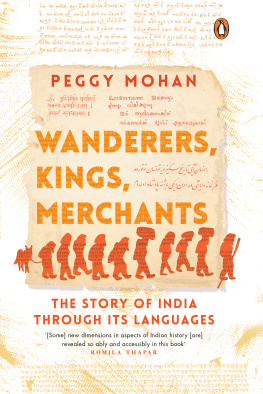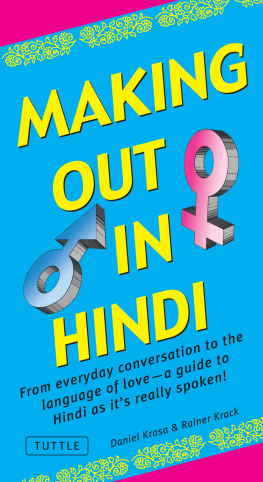
Evolution, Race and Public Spheres in India
This book provides an in-depth exploration of South Asian readaptations of race in vernacular languages. The focus is on a diverse set of printed texts, periodicals and books in Hindi and Urdu, two of the major print languages of British North India, written between 1860 and 1930.
Imperial raciology is a burgeoning field of historical research. So far, most studies on race in the British Empire in South Asia have concentrated on the writings of Western-educated elites in English. The range of Hindi and Urdu sources analyzed by the author provides a more varied and complex picture of the ways in which South Asians reinterpreted racial concepts, thereby highlighting the importance of scrutinizing the vernacular dimensions of global entanglements. revolves around the science of eugenics. It scrutinizes more popular genres, namely, early twentieth century advisory literature on fit reproduction. It highlights how the knowledge promoted there was different from eugenics as the (mainly English-writing) founders of the Indian eugenic movements endorsed it.
A fascinating analysis of the ways in which colonized elites have adopted and readapted racial concepts and theories, this book will be of interest to academics in the fields of Modern South Asian History, History of Science, Critical Race Studies and Colonial and Imperial History.
Luzia Savary received her doctorate in History of the Modern World from the Swiss Federal Institute of Technology (ETH), Zurich, Switzerland. She currently works as an interpreter at the Refugee Office of the Italian Consortium of Solidarity in Trieste, Italy.
Routledge Studies in South Asian History
Politics and Left Unity in India
The United Front in Late Colonial India
William Kuracina
Citizenship, Community and Democracy in India
From Bombay to Maharashtra, c.19301960
Oliver Godsmark
India and World War I
A Centennial Assessment
Edited by Roger D. Long and Ian Talbot
Foreign Policy of Colonial India
19001947
Sneh Mahajan
Women and Literary Narratives in Colonial India
Her Myriad Gaze on the Other
Sukla Chatterjee
Gender, Nationalism, and Genocide in Bangladesh
Naristhan/Ladyland
Azra Rashid
Evolution, Race and Public Spheres in India
Vernacular Concepts and Sciences (18601930)
Luzia Savary
For more information about this series, please visit: www.routledge.com/asianstudies/series/RSSAH
Evolution, Race and Public Spheres in India
Vernacular Concepts and Sciences (18601930)
Luzia Savary
First published 2019
by Routledge
2 Park Square, Milton Park, Abingdon, Oxon OX14 4RN
and by Routledge
52 Vanderbilt Avenue, New York, NY 10017
Routledge is an imprint of the Taylor & Francis Group, an informa business
2019 Luzia Savary
The right of Luzia Savary to be identified as author of this work has been asserted by her in accordance with sections 77 and 78 of the Copyright, Designs and Patents Act 1988.
All rights reserved. No part of this book may be reprinted or reproduced or utilized in any form or by any electronic, mechanical, or other means, now known or hereafter invented, including photocopying and recording, or in any information storage or retrieval system, without permission in writing from the publishers.
Trademark notice: Product or corporate names may be trademarks or registered trademarks, and are used only for identification and explanation without intent to infringe.
British Library Cataloguing-in-Publication Data
A catalogue record for this book is available from the British Library
Library of Congress Cataloging-in-Publication Data
A catalog record has been requested for this book
ISBN: 978-1-138-54184-9 (hbk)
ISBN: 978-1-351-01008-5 (ebk)
Typeset in Times New Roman
by Wearset Ltd, Boldon, Tyne and Wear
Contents
My first message of gratitude goes to the Routledge South Asia publishing team which has been extremely patient in waiting for the final version of this book to materialize.
The book is largely based on my doctoral thesis and I would like to express my warmest gratitude to Prof Harald Fischer-Tin, my supervisor. He has helped me in three important ways: providing fundamental theoretical inputs in the initial phase of my research when I did not know what direction to take; leaving me the freedom of choosing the direction of my own; and, finally, giving me constant critical feedback once research results did eventually emerge. I am also highly grateful to Prof Margrit Pernau, my second supervisor, who has offered her exhaustive answers to my endless questions regarding Urdu sources and crucial critical feedback to the thesis. I also wish to thank Douglas E. Haynes, who agreed to act as third supervisor to my thesis, a bureaucratic specialty of ETH Zurich. He has been an extremely careful and stimulating commentator, especially in relation to the part of my work concerning Hindi advisory literature on reproduction.
Further, I have learned a lot from my fellow PhD students and Post-Docs at ETH Zurich. First of all, I owe much to Dr Nikolay Kamenov, who has kept in touch after my departure from Zurich not only as a friend but also as a motivator and commentator. During our common period at ETH we have been teaching two courses together, and I have profited a lot from his knowledge. Special thanks goes to Paromita Das Gupta for having been at my side during the first part of this journey, in which we have often discussed our doubts and problems together. My gratitude also goes to Dr Jana Tschurenev for her critical feedback during the first stages of this work. I also want to thank Dr Christine Whyte from whom I have also profited much and whom I have been missing since she finished her PhD. Dr Vasudha Bharadwaj, who joined the team shortly before I left, has also given me important inputs. Dr Monika Freier from Max-Planck-Institute, Berlin helped me prepare my research trip to India and has kindly shared some of her own source material with me. I am very grateful to her in this respect. I also thank the librarians Sadhna Chaturvedi and Purnimaji, who have kindly assisted me in the library of the Hindi Shitya Sammelan in Allahabad. Mr Sharma and his colleagues at the Marwari Library in Delhi have also been very helpful. I thank Dr Charu Singh for starting a fascinating conversation which I hope to continue.
Last but not least, the greatest thanks goes to the people who have made the completion of the thesis and the book possible in practical terms; that is, offering themselves as babysitters while I was writing: nonna Ruth deserves enormous thanks in this regard. I also thank nonno Bruno and zia Laura. Fabrizio proved to be an excellent ham-safar also in this hectic phase of life. It is to him and to our daughters that this book is dedicated.
The system of diacritical marks followed in this thesis is based on that outlined in the following dictionaries.
Hindi: The Oxford Hindi-English Dictionary


